
Fellowships, student placements and online courses
Exceptional training to prepare the next generation of leaders in global child health.
We’re committed to training and educating the next generation of leaders in global child health, offering a number of programs and fellowships for aspiring students and fellows.
Check out the opportunities currently available at SickKids, as well as eligibility criteria, application requirements, deadlines, and more.
Student opportunities
Every summer, we welcome students looking to develop their knowledge and skills in global child health.
We currently accept students through several existing summer research programs. Please visit each program’s website for more information about eligibility criteria, application requirements, and deadlines.
- SickKids Summer Research (SSuRe) Program
- Comprehensive Research Experience for Medical Students (CREMS) Program
- Social Paediatrics Research Summer Studentship (SPReSS) Program
- Paediatric Research and Clinical Summer (PeRCS) Program
- Department of Nutritional Sciences Summer Student Program
Individuals interested in volunteer opportunities, please visit the SickKids volunteering page.
The Global Child Health (GCH) Fellowship program aims to prepare candidates for careers in global health by developing leadership and scholarly skills in global health research or capacity building.
Successful applicants will play a lead role in the design, implementation, and analysis or evaluation of research or capacity building projects that cover a wide range of global health topic areas (e.g., nutrition, child growth and development, oncology, infectious diseases, climate change, microbiome, vaccine development, complex systems and network science, implementation science, health system strengthening, health workforce training, etc.).
All fellows will be provided with global health education and mentorship opportunities throughout the two-year fellowship program. Fellows must be supervised (or co-supervised) by a Core Faculty member at the C-GCH and will be expected to meet four times per year with a supervisory committee that will oversee and evaluate their scholarly progress, in addition to attending regular meetings with their primary supervisor(s).
At the time of application, fellows must choose between a scholarly project that focuses on research (Track 1) or capacity building (Track 2); however, all fellows will have the opportunity to gain exposure to both domains of scholarly work. Fellows will be matched with a primary supervisor at the C-GCH based on alignment between the applicant’s skills and interests and the availability of a funded scholarly project being led or co-led by C-GCH Core Faculty members.
Fellowships will be based at SickKids, with travel to study/program sites, when appropriate.
Salary support will be provided for the duration of the two-year appointment; however, successful applicants will be expected to apply to scholarship opportunities leading up to and during their fellowship.
We are now accepting applications for the 2025/2026 fellowship cohort. Complete application packages are due by June 30, 2025, at 11:59 p.m. EDT.
See the Call for Applications document for further details about eligibility and the application process.
Call for Applications (PDF)
Application Form (PDF)
Frequently Asked Questions (PDF)
Questions can be directed to the Global Child Health Fellowship Program Committee at: cgch.fellowship@sickkids.ca.
The Centre for Global Child Health (C-GCH) at The Hospital for Sick Children (SickKids) — established in 2013 as the hub for global health activities at SickKids — has partnered with the Department of Surgery at the University of Toronto to launch the inaugural SickKids Centre for Global Child Health Global Surgery Fellowship Training Program.
This one to two-year Global Surgery Fellowship program will provide residents and fellows with the opportunity to develop leadership and scholarly skills in global surgical care, through research, capacity building, advocacy, knowledge translation, and policy development.
Salary support will be provided for the duration of the one to two-year appointment; however, successful applicants will be expected to apply to funding agencies leading up to their fellowship, and to seek out funding opportunities throughout the course of their fellowship in support of their scholarly work.
The fellowship program consists of two tracks:
- Track 1: Individuals have completed medical school and are currently enrolled in and will have completed at least two years of a residency program in a surgical specialty by the start of the fellowship program.
- Track 2: Individuals who are fully trained surgeons and have completed 5 years of a residency program (or international equivalent) leading to successful Board/Fellowship certification or eligibility for certification in a surgical specialty by the start of the SickKids fellowship program.
For more information about the program structure, eligibility criteria and application process, please carefully review the Call for Applications.
Complete application packages are due by June 30, 2025, at 11:59 p.m. EDT.
Call for Applications (PDF)
Application Form (PDF)
Questions can be directed to the Global Surgery Fellowship Program Committee at: global.surgery@sickkids.ca.
The Centre for Global Child Health (C-GCH) and the Garron Family Cancer Centre (GFCC) at The Hospital for Sick Children have partnered together to create the Global Oncology Fellowship training program.
The Global Oncology Fellowship is a new and unique training program that serves to develop the leadership and scholarly skills of participating fellows with the aim of improving the outcomes of children with cancer and their families in low- and middle-income countries.
Applicants should be looking to start a challenging two-year academic fellowship program. This interdisciplinary program will be accepting applicants from a variety of clinical, research, and other related professional backgrounds (e.g., medicine and surgery, laboratory sciences, nursing, allied health, epidemiology, etc.)
We are no longer accepting applications for this fellowship.
Questions can be directed to the Global Child Health Fellowship Program Committee at: cgch.fellowship@sickkids.ca
Current and past fellows
Dr. Michael Prodanuk
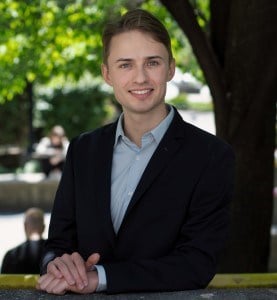
Dr. Michael Prodanuk MD, DTM&H, FRCPC, FAAP (pronouns: he/him) is a paediatric infectious diseases physician with a passion for improving clinical care and producing impactful research for childhood infections. He completed medical school at the University of Saskatchewan followed by a paediatrics residency and paediatric infectious diseases fellowship at the University of Toronto and The Hospital for Sick Children (SickKids). Michael holds a Diploma of Tropical Medicine and Hygiene (DTM&H) from the Gorgas Course in Clinical Tropical Medicine through the Universidad Peruana Cayetano Heredia, Lima, Peru and the University of Alabama at Birmingham. Michael is currently pursuing a Master of Science in Clinical Epidemiology and Health Care Research at the Institute for Health Policy, Management, and Evaluation within University of Toronto´s Dalla Lana School of Public Health. He is also an Executive Committee Member-In-Training of the Paediatric Investigators Collaborative Network on Infections in Canada (PICNIC), a paediatric infectious diseases research network which conducts multi-centre projects across Canada and beyond.
Given his special interest in childhood tuberculosis (TB), Michael´s fellowship research projects will focus on improving TB diagnostics in the paediatric population. TB diagnosis in children can be challenging given the difficulty in obtaining adequate sputum samples in infants and toddlers, as well as the relatively low number of bacteria present in this age group. For these reasons, new diagnostic modalities, such a biomarkers, are an area of active research. Michael´s work will investigate the use of certain blood biomarkers for the diagnosis of TB in a cohort of Tanzanian patients. In addition, he is conducting a systematic review and meta-analysis of blood biomarkers for the diagnosis of TB in children. He hopes this work will improve the diagnostic landscape for children with TB.
Dr. Salima Kerai-Sayani
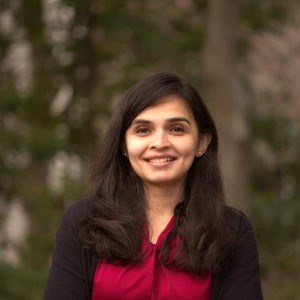
Dr. Salima Kerai-Sayani (pronouns: she/her/hers) is an interdisciplinary health researcher passionate about promoting well-being of children and adolescents globally. She holds a Bachelor of Science in Nursing and a Master of Science in Epidemiology and Biostatistics from Aga Khan University, where she received the National Institute of Health (NIH)’s Fogarty Fellowship in injury prevention research. Salima completed her PhD in Population and Public Health at the University of British Columbia, focusing her research on measuring child well-being in Canada and Pakistan. Her work has garnered recognition through awards and fellowships such as the Society to Cell Clyde Hertzman Fellowship and the Social Sciences and Humanities Research Council (SSHRC) doctoral award.
Salima’s extensive experience working with children and families in several rural and remote communities in Pakistan has given her a deep understanding of the global health challenges. Recognizing climate change as a critical public health emergency, especially for vulnerable populations like children, Salima’s postdoctoral fellowship will investigate how climate-related extreme weather events affect developmental and educational outcomes in children in early and middle childhood in low- and middle-income countries (LMICs). This evidence on health impact is critical for informing future research, program and policy initiatives strategies to protect vulnerable children globally.
2024
- Paulo Neves
Country of Origin: Brazil
Fellowship Stream: Global Child Health Fellowship
Supervisor: Dr. Zulfiqar Bhutta - Ovokeraye Oduaran
Country of Origin: South Africa
Fellowship Stream: Global Child Health Fellowship
Supervisor: Dr. Daniel Roth
2023
- Michelle Dimitris
Country of Origin: Canada
Fellowship Stream: Global Child Health Fellowship
Supervisor: Dr. Zulfiqar Bhutta - Hillary Ganek
Country of Origin: USA
Fellowship Stream: Global Child Health Fellowship
Supervisor: Dr. Zulfiqar Bhutta - Doris Gonzalez
Country of Origin: Colombia
Fellowship Stream: Microbiome, Infections and Childhood Growth and Development Fellowship
Supervisor: Dr. Zulfiqar Bhutta - Sam Brophy-Williams
Country of Origin: Australia
Fellowship Stream: Global Child Health Fellowship
Supervisor: Brian Smith
2022
- Scarlett Puebla-Barragan
Country of Origin: Mexico
Fellowship Stream: Microbiome, Infections and Childhood Growth and Development Fellowship
Supervisor: Dr. Daniel Roth
2021
- Laura Vresk
Country of Origin: Canada
Fellowship Stream: Global Child Health Fellowship
Supervisor: Dr. Robert Bandsma - Kun Tang
Country of Origin: China
Fellowship Stream: Global Child Health Fellowship
Supervisor: Dr. Zulfiqar Bhutta
2020
- Fiona Muttalib
Country of Origin: Canada
Fellowship Stream: Global Child Health Fellowship
Supervisor: Dr. Zulfiqar Bhutta
- Eric Ohuma
Country of Origin: Kenya
Fellowship Stream: Fetal, Child and Adolescent Growth and Development
Supervisor: Dr. Daniel Roth
- Karen O'Callaghan
Country of Origin: Ireland
Fellowship Stream: Fetal, Child and Adolescent Growth and Development
Supervisor: Dr. Daniel Roth
2019
- Ashley Aimone
Country of Origin: Canada
Fellowship Stream: Fetal, Child and Adolescent Growth and Development
Supervisor: Dr. Daniel Roth
- Tessa Clemens
Country of Origin: Canada
Fellowship Stream: Global Child Health Fellowship
Supervisor: Dr. Andrew Howard
- Jessica Duby
Country of Origin: Canada
Fellowship Stream: Global Child Health Fellowship
Supervisor: Dr. Shaun Morris
- Farah Sheikh
Country of Origin: Canada
Fellowship Stream: Global Child Health Fellowship
Supervisor: Margaret Manley
- Debbie Thompson
Country of Origin: Jamaica
Fellowship Stream: Global Child Health Fellowship
Supervisor: Dr. Robert Bandsma - Liina Mansukoski
Country of Origin: Finland
Fellowship Stream: Fetal, Child and Adolescent Growth and Development
Supervisor: Dr. Daniel Roth
2018
- Barbara Couper
Country of Origin: Canada
Fellowship Stream: Global Child Health Fellowship
Supervisor: Stephanie de Young
- Natasha Lelijveld
Country of Origin: England
Fellowship Stream: Fetal, Child and Adolescent Growth and Development
Supervisor: Dr. Daniel Roth
2017
- Hasan Merali
Country of Origin: Canada
Fellowship Stream: Academic Fellowship
Supervisor: Dr. Stanley Zlotkin - Ashley Vandermorris
Country of Origin: Canada
Fellowship Stream: Global Child Health Fellowship
Supervisor: Dr. Stanley Zlotkin
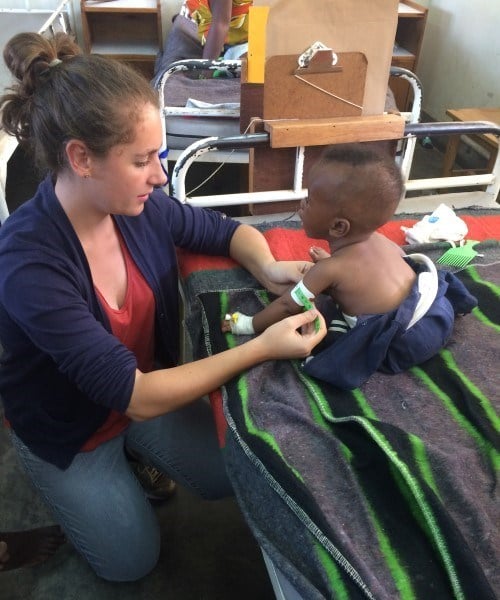
Global Child Health Catalyst Grant
The Global Child Health Catalyst Grant aims to support innovations that benefit children and their families in resource constrained settings.
‘Innovation’ can be expressed in many areas, including scientific, technical, social, management, and implementation. We’ll fund up to two awards of up to $50,000 CAD each. We’re looking for high-quality proposals that impactfully moves global child health forward.
External applicants are welcomed but the principal applicant must be a SickKids staff member, graduate student or postdoctoral fellow (a staff appointment is not required).
We are no longer accepting applications for the 2025 Global Child Health Catalyst Grant competition. Stay tuned for the next competition!
Learn more about Global Child Health Catalyst Grant award recipients (PDF).
Get in touch with us at: global.catalyst@sickkids.ca for any questions or other inquiries.

Free online courses in global child health and public health nutrition
In order to increase the availability of training to health-care providers worldwide, the Centre developed and designed the SickKids Public Health Nutrition Course and the SickKids Global Child Health Course. By leveraging the expertise and global networks of SickKids, these free online courses provide participants with exposure to key issues in global child health and public health nutrition. Our vision is to increase availability of training to healthcare workers worldwide, while equipping course participants with the knowledge to address global child health challenges specifically in resource-poor settings.
Follow the links below to start the online courses today!
SickKids Public Health Nutrition Course (SPHNC)
The SickKids Public Health Nutrition Course (SPHNC) bridges the gap between science evidence and policy with a focus on capacity development for those who want to bring about change in low-and-middle-income countries.
Learn more and register for the SPHNC course
SickKids Global Child Health Course (SGCHC)
The SickKids Global Child Health Course (SGCHC), an open access e-learning resource, aims to expose students and health workers to key issues in global child health, especially from a low-income setting perspective.
Learn more and register for the SGCHC course
More from the Centre for Global Child Health
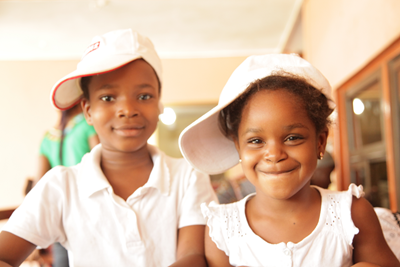
About the Centre for Global Child Health
The Centre for Global Child Health connects researchers and health-care professionals around the world to improve the lives of children and their families in resource-poor environments
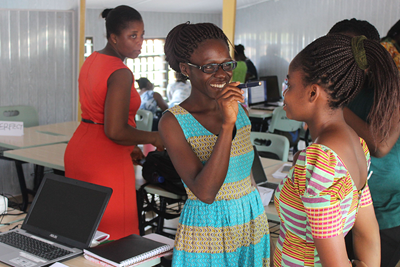
Capacity Building
Our capacity building projects focus on collaborative and sustainable paediatric health workforce training and education programs.
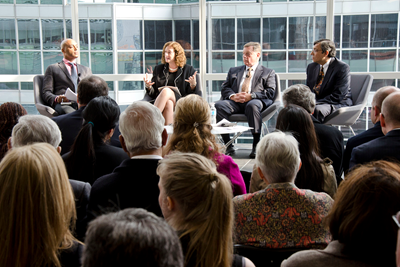
Knowledge Synthesis, Translation and Advocacy
Centre initiatives, partnerships and networks are focused on the translation and management of knowledge to impact child health policy.
Research
Learn how leading child health experts are addressing global challenges through collaborative, innovative research.
Contact us
For questions or more information about the Centre, please email us at globalchild.health@sickkids.ca, or follow us on Twitter @SickKidsGlobal and LinkedIn.
Mailing Address
Centre for Global Child Health
The Hospital for Sick Children (SickKids)
525 University Avenue, Suite 702
Toronto, ON, M5G 2L3

